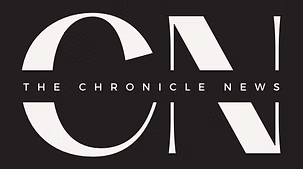Church Representatives Explore the Journey to Support the Justice League of Greater Lansing Michigan at a Panel Discussion on February 28th, 2024
- Yanice Y. Carter

- Feb 15, 2024
- 3 min read
Panel includes representatives of 7 churches, others that have made significant payments to the League’s reparations fund
Courtesy Photo-Congregants gather for the check presentation to the Justice League at First Presbyterian Church of Lansing Feb. 4, 2024.
LANSING, Mich. — Representatives of churches and others that have made significant reparations payments to the Justice League of Greater Lansing Michigan will share the journey that led their congregations to support the League at a panel discussion, Wednesday, Feb. 28, 6:30–8 p.m., at the East Lansing Public Library, 950 Abbot Rd. An individual who made an estate gift commitment to the League will also be on the panel.
The event, titled “How did we get here?”, is presented by the Justice League of Greater Lansing Michigan and East Lansing Public Library. Reservations are recommended at www.JusticeLeagueGLM.org.
The two-year-old, Black-led, not-for-profit organization has built an endowed reparations fund of more than $400,000 to address the racial wealth gap in Greater Lansing.
“Those who have made financial reparations have been intentional in seeking a better understanding of the impact of centuries of human rights violations against African Americans,” said Willye Bryan, founder and vice president, of Justice League of Greater Lansing Michigan. “We hope this event will inspire people to learn about the ways most white families could build generational wealth that was not available to African Americans. This includes the G.I. Bill, property appreciation due to redlining by banks, access to capital for businesses, and many other forms of racial discrimination.”
Angelo Moreno, interim library director, said, “The Library is excited to host this important discussion. We look forward to hearing directly from community members who have boldly honored their commitment to justice, in both words and deeds.”
Churches that will be represented on the panel are All Saints Episcopal Church and Edgewood United Church of Christ, East Lansing; First Presbyterian Church of Holt; and First Presbyterian Church of Lansing, Red Cedar Friends Meeting, Unity Spiritual Center of Lansing, and Sycamore Creek Church - Eastwood Campus, Lansing. Experience of two churches:
Kathy Fore, a congregant of Edgewood United, said the church’s $100,000 payment to the League was the result of studies organized by the church's Racial Justice Ministry Team.
“For over eight years we, as a predominantly white congregation, took steps to educate ourselves,” Fore said. “We focused on books, movies, educators, museum field trips, a racial healing weekend and after-church presentations. When we were approached by the Justice League, we were prepared to support their mission.”
Janet Chegwidden, who leads the Social Justice Ministry Team at All Saints, said, “Our parish has been prolific in addressing social justice issues. It is our faith’s call to action. We usually work through advocacy and partnerships with organizations to improve systems that keep people marginalized. The payment to the Justice League was different.
“Our opportunity to make reparations arose when we sold the church rectory. It had appreciated in value largely because of racism. The rectory is located next to the church in East Lansing, a primarily white community that was not open to African American homeowners until 1964.
“To better understand and follow the wishes of the parish we organized adult education forums, book discussions and a listening campaign. Ultimately, half of the sale proceeds went to the Justice League in repentance of the sins of racism.”
Fore believes that addressing racism has been positive for the church.
"We decided we have a responsibility to the Black Community," she said. "The church's wealth was built on opportunities from which the Black community was excluded. When brought to a vote, the reparation payment received 100% support from members. Individual members gave an additional $60,000.
"Our efforts make a statement of who we are and how we live up to the values of Edgewood. I believe going through this process has made us a stronger church family."
About Justice League of Greater Lansing Michigan
The 501(c)(3) nonprofit organization was founded in 2021 to repair the breach in Greater Lansing caused by the nation’s historical damage of slavery. Reparations are in the spirit of repentance for the sins of slavery, its aftermath of gross human rights violations — including genocide, violence, land theft, incarceration and police violence — and complicity in the misbelief of white supremacy.
The solution is a faith-based model of reparations. The Justice League builds relationships and facilitates reparations between houses of worship, collaborative partners and individuals to close the racial wealth gap that exists between Black and white residents. This specifically means increasing wealth equity for descendants of enslaved African Americans. Financial reparations will support home ownership, education and entrepreneurship. More information is at www.JusticeLeagueGLM.org.










Comments